Research
-

Four new Alzheimer’s genes uncovered
Jonathan Haines, director, Vanderbilt Center for Human Genetics Research (Vanderbilt) Vanderbilt researchers, who helped organize a consortium including the University of Pennsylvania School of Medicine, the University of Miami Miller School of Medicine, and the Boston University School of Medicine, have identified four new genes linked to… Read MoreApr 4, 2011
-

Gene ups risk for needing pacemaker
Researchers have identified a gene that increases the risk for developing sick sinus syndrome – the most common cause for implanting a cardiac pacemaker. Read MoreApr 1, 2011
-

New minor in scientific computing launched
Educating students in diverse disciplines in scientific computing is the aim of a new interdisciplinary major being offered this fall. Read MoreApr 1, 2011
-
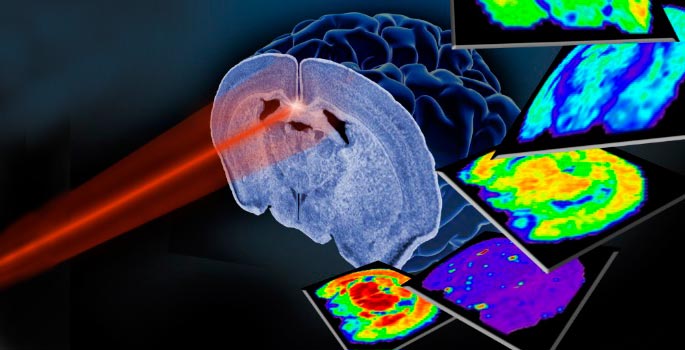
Grant bolsters molecular imaging resource
Vanderbilt has received a $10.3 million federal grant to establish a national research resource for mass spectometry. Read MoreApr 1, 2011
-

How young brains make sense of senses
The brain’s ability to process multiple sensory inputs continues to develop well into childhood, a recent study shows. Read MoreMar 31, 2011
-

Carbon labeling: putting the power in consumer’s hands
A private carbon labeling system could help make a dent in greenhouse gas emissions by leveraging consumer purchasing power. Read MoreMar 29, 2011
-

Science fair tickles the brains of participants
Brain Blast 2011 featured 35 different ways to learn about the brain, guided by Vanderbilt neuroscience graduate students, postdoctoral fellows, faculty members and other volunteers. More than 100 neuroscientists participated. Read MoreMar 28, 2011
-

Vanderbilt Kennedy Center campers join Darius Rucker at ACM Awards
A special performance at the 46th Annual Academy of Country Music Awards April 3 at 8 p.m. on CBS featuring country music star Darius Rucker and participants in the Vanderbilt Kennedy Center's ACM Lifting Lives Music Camp will benefit the Kennedy Center. Read MoreMar 28, 2011
-
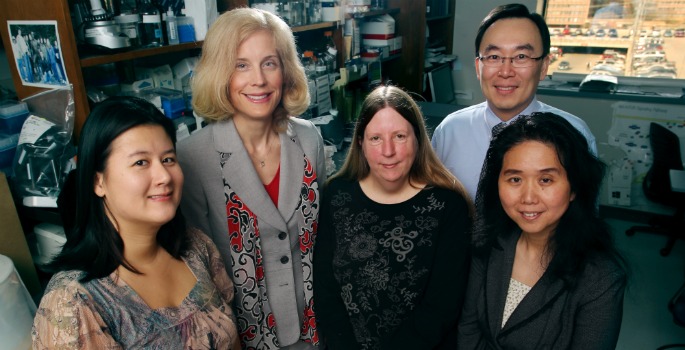
Gene ‘signature’ may predict cancer outcomes
A gene signature may be useful in predicting outcomes for patients with rhabdomysarcoma, a form of cancer most commonly diagnosed in children. Read MoreMar 25, 2011
-

Cancer Center study snuffs out menthol myths
People who smoke mentholated cigarettes are no more likely to develop lung cancer or die from the disease than are smokers of non-mentholated brands, a new study shows. Read MoreMar 24, 2011
-

Insights on NSF funding from agency’s deputy director
Cora Marrett, nominated to serve as deputy director of NSF, speaking at the NSF regional grants conference at Loews Vanderbilt March 21. (Susan Urmy / Vanderbilt) The Loews Vanderbilt Hotel was bustling with scientists, engineers and research administrators March 21 and 22 when Vanderbilt University hosted its… Read MoreMar 24, 2011
-
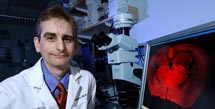
Identifying genes to predict and prevent pre-term birth
Vanderbilt professor receives $585,000 March of Dimes grant to identify genes that may predict preterm birth and help in the development of drugs to prevent it. Read MoreMar 22, 2011
-

Breast cancer vulnerable to multi-hit therapy
Combining targeted therapies may increase their effectiveness in treating a common and aggressive form of breast cancer. Read MoreMar 21, 2011
-

Graphene expert receives NSF CAREER award
Vanderbilt physicist Kirill Bolotin has received NSF’s CAREER award, which supports exceptionally promising junior faculty members. Read MoreMar 21, 2011
-
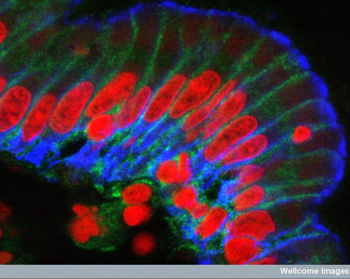
Protein combos keep cells straight
Researchers define the protein interactions that establish our organs' lining. Read MoreMar 18, 2011
-

Medical mistakes interfere with hospitals’ ‘do no harm’ aim
A clear safety culture and “conceptual toolkit” are needed to reduce medical mistakes, research from Vanderbilt Owen Graduate School of Management finds. Read MoreMar 18, 2011
-
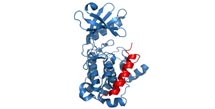
Spying on shape-shifting enzyme
New molecular views of an enzyme may inform therapies for neurological, psychiatric or cardiac diseases. Read MoreMar 18, 2011
-

Nurse staffing levels linked to patient mortality risk
A new study finds that when nurses' workloads increase during shifts because of high patient turnover, mortality risk also increases. Read MoreMar 17, 2011
-

Smell test tells disorders apart
Patients with certain autonomic nervous system disorders have impaired odor identification, which could aid in diagnosis. Read MoreMar 17, 2011
-

Large Hadron Collider could be world’s first time machine
Prof. Thomas Weiler, right, and graduate fellow Chui Man Ho (John Russell / Vanderbilt) If the latest theory of Tom Weiler and Chui Man Ho is right, the Large Hadron Collider – the world’s largest atom smasher that started regular operation last year – could be… Read MoreMar 15, 2011